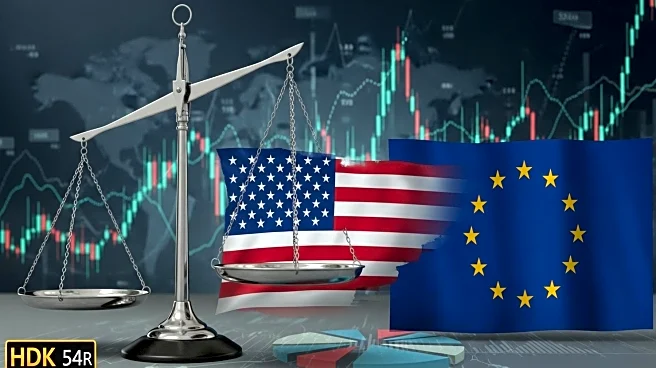What's Happening?
A recent poll indicates that a majority of citizens in the EU's largest member states believe the European Commission compromised European interests in a tariff deal with President Trump. The deal, which removes tariffs on US industrial goods and provides preferential access for US seafood and agricultural products, is seen as benefiting the US economy more than Europe's. The agreement has sparked dissatisfaction among Europeans, with many viewing it as a 'humiliation' and expressing a desire for the EU to oppose US policies more strongly.
Why It's Important?
The dissatisfaction with the tariff deal highlights tensions between the EU and the US, particularly regarding trade policies. The perception that the deal favors the US could lead to increased scrutiny of EU trade agreements and pressure on the European Commission to negotiate more favorable terms. This situation may affect transatlantic relations and influence future trade negotiations, impacting industries and economies on both sides.
What's Next?
The European Commission may face calls for renegotiation or adjustments to the tariff deal to better protect European interests. Ursula von der Leyen's upcoming 'state of the union' address may address these concerns and outline strategies to strengthen the EU's position in international trade. Stakeholders, including political leaders and industry representatives, will likely engage in discussions to address the implications of the deal.
Beyond the Headlines
The criticism of the tariff deal reflects broader concerns about the EU's ability to protect its interests in global trade. This situation may lead to increased efforts to strengthen the EU's negotiating power and develop strategies to counterbalance US influence in international trade agreements.









